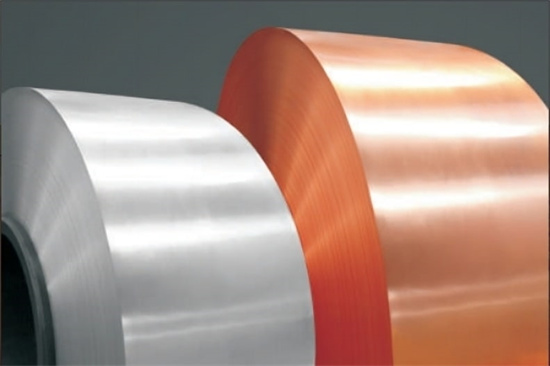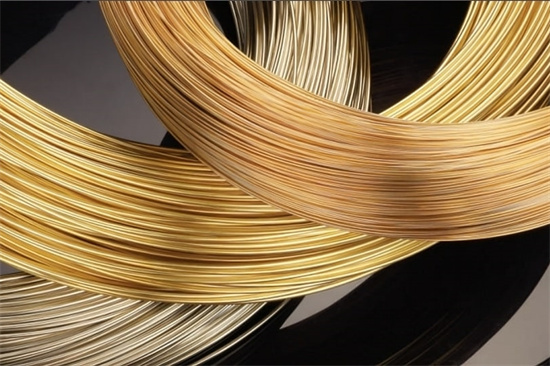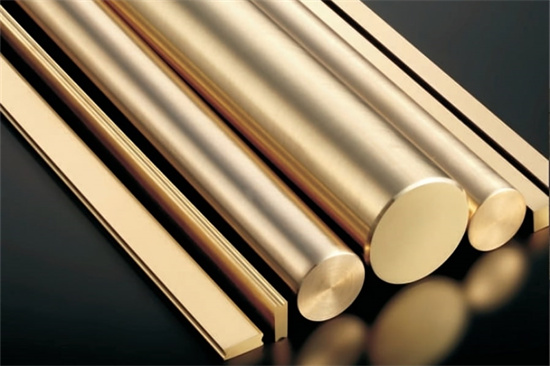


Cu-Sn Alloy Fine Wire: The Most Reliable Choice for Extreme Conditions
Low MOQ
Provide low minimum order quantity to meet different needs.
OEM & ODM
Provide customized products and design services to meet unique customer needs.
Adequate Stock
Ensure fast order processing and provide reliable and efficient service.
Customer Satisfaction
Provide high quality products with customer satisfaction at the core.
share this article
Table of Contents
When it comes to manufacturing materials that blend strength, conductivity, and corrosion resistance, Cu-Sn Alloy Fine Wire (commonly known as bronze) stands as one of the most versatile choices. The alloy, primarily composed of copper (Cu) and tin (Sn), has been used for thousands of years, but its modern applications have evolved significantly, especially in the form of fine wire. Today, this material is integral to industries ranging from electronics to aerospace.
In this article, we’ll dive into the details of Cu-Sn Alloy Fine Wire, exploring its composition, properties, applications, and much more. Whether you’re an engineer, manufacturer, or someone interested in advanced materials, you’ll find this guide packed with valuable insights.
Overview: What is Cu-Sn Alloy Fine Wire?
Cu-Sn Alloy Fine Wire is an alloy made by combining copper and tin in specific proportions to enhance their individual properties. Tin, when added to copper, increases the alloy’s hardness, strength, and corrosion resistance. These fine wires are typically used in applications that require high precision, strength, and resistance to environmental degradation.
Due to its non-magnetic nature and excellent corrosion resistance—especially in marine environments—Cu-Sn alloy fine wire is widely used in electronic connectors, springs, and musical instruments. The fine wire format is especially advantageous when precision and flexibility are critical, such as in telecommunication devices and micro-electronics.
Composition and Properties of Cu-Sn Alloy Fine Wire
The performance and versatility of Cu-Sn Alloy Fine Wire come directly from its composition. By adjusting the percentage of tin, manufacturers can tailor the alloy to meet specific needs.
Typical Composition of Cu-Sn Alloy Fine Wire
| Element | Percentage (%) | Role in the Alloy |
|---|---|---|
| Copper (Cu) | 85-95% | Provides base material, excellent electrical conductivity. |
| Tin (Sn) | 5-15% | Increases hardness, corrosion resistance, and strength. |
Properties of Cu-Sn Alloy Fine Wire
| Property | Description |
|---|---|
| Density | Approximately 8.8 g/cm³ |
| Tensile Strength | Ranges from 350 MPa to 650 MPa, depending on tin content and processing. |
| Electrical Conductivity | 15-25% IACS (International Annealed Copper Standard). |
| Corrosion Resistance | Excellent resistance to corrosion, especially in saltwater environments. |
| Hardness | Higher than pure copper; increases with higher tin content. |
| Thermal Conductivity | Lower than pure copper but sufficient for many electronic and mechanical applications. |
Why is this composition important? The addition of tin to copper significantly enhances the mechanical properties without drastically reducing electrical conductivity. This balance makes it ideal for applications where both strength and conductivity are needed, such as in electrical connectors and springs.
Applications of Cu-Sn Alloy Fine Wire
Thanks to its unique combination of strength, conductivity, and corrosion resistance, Cu-Sn Alloy Fine Wire finds application in a wide range of industries.
Common Applications of Cu-Sn Alloy Fine Wire
| Industry | Application |
|---|---|
| Electronics | Used in connectors, electrodes, and fine wiring for circuit boards. |
| Aerospace | Springs, contacts, and fasteners for aircraft components. |
| Automotive | Electrical connectors and grounding wires in vehicles. |
| Marine | Corrosion-resistant wires for shipbuilding and underwater applications. |
| Musical Instruments | Used in the production of springs and strings for instruments. |
| Telecommunications | Fine wiring for telecom devices and fiber optics systems. |
Expanded Application Insights
- Electronics: In today’s digital age, electronics manufacturers rely on materials that can handle high-frequency signals, resist oxidation, and maintain electrical integrity over time. Cu-Sn Alloy Fine Wire is perfect for this, thanks to its non-magnetic nature and resistance to environmental degradation.
- Aerospace: The Cu-Sn alloy is used in the aerospace industry for its strength, lightweight nature, and corrosion resistance. Components such as springs and contacts in aircraft systems benefit from the alloy’s ability to withstand extreme temperatures and pressures.
- Automotive: With the rise of electric vehicles (EVs), fine conductive materials like Cu-Sn Alloy Fine Wire are becoming increasingly important for grounding systems and connectors. It ensures electrical reliability while standing up to harsh driving conditions.
- Marine: The alloy’s resistance to corrosion, especially in saltwater environments, makes it a popular choice for marine applications. Wiring systems and connectors in ships and offshore platforms often use Cu-Sn alloy to ensure long-lasting performance.
- Musical Instruments: The springy nature of Cu-Sn alloy is invaluable in the production of musical instrument strings. The alloy’s acoustic properties make it a favorite among manufacturers of stringed instruments where resonance and durability are key.
Specifications, Sizes, and Standards for Cu-Sn Alloy Fine Wire
When selecting Cu-Sn Alloy Fine Wire for specific applications, it’s crucial to follow established standards and specifications to ensure reliability and performance.
Specifications and Standards for Cu-Sn Alloy Fine Wire
| Standard | Description |
|---|---|
| ASTM B505 | Standard for copper-based alloys used in electrical applications. |
| EN 1652 | European standard for copper and copper alloys for sheet and strip. |
| ISO 1634 | International standard for copper alloys, specifying tolerances and properties. |
| JIS H3250 | Japanese standard for high-performance copper alloys. |
| MIL-C-15726F | Military specification for corrosion-resistant copper alloys. |
Available Sizes and Forms of Cu-Sn Alloy Fine Wire
| Form | Available Sizes |
|---|---|
| Fine Wire | Diameters ranging from 0.1 mm to 5 mm. |
| Sheets | Thickness from 0.2 mm to 5 mm. |
| Bars and Rods | Available in diameters from 1 mm to 50 mm. |
| Strips | Available in widths from 5 mm to 150 mm. |
Suppliers and Pricing for Cu-Sn Alloy Fine Wire
When sourcing Cu-Sn Alloy Fine Wire, it’s essential to find reputable suppliers that offer consistent quality and competitive pricing. Prices can vary based on factors like quantity, purity, and processing.
Suppliers and Pricing for Cu-Sn Alloy Fine Wire
| Supplier | Location | Price (per kg) | Lead Time |
|---|---|---|---|
| Thyssenkrupp Materials | Global | $18.00 – $24.00 | 4-6 weeks |
| KME Group | Europe, USA | €15.00 – €22.00 | 3-5 weeks |
| Wieland Group | Europe, USA | €17.00 – €23.00 | 3-4 weeks |
| Mitsubishi Materials | Japan | ¥2,000 – ¥2,600 per kg | 2-4 weeks |
| Aurubis | Global | $19.00 – $25.00 | 3-6 weeks |
Price Insights
- The typical price for Cu-Sn Alloy Fine Wire ranges from $18.00 to $25.00 per kg, depending on the supplier and specific requirements.
- Lead times vary but are generally between 3 to 6 weeks, depending on the order size and location.
Advantages and Limitations of Cu-Sn Alloy Fine Wire
Before selecting any material, it’s important to weigh its advantages and limitations. So, how does Cu-Sn Alloy Fine Wire stack up?
Advantages and Limitations of Cu-Sn Alloy Fine Wire
| Advantages | Limitations |
|---|---|
| Excellent corrosion resistance | Higher cost compared to some other copper alloys. |
| Good electrical conductivity | Lower conductivity than pure copper. |
| Non-magnetic properties | Limited availability in some regions. |
| Good strength and flexibility | Requires specialized handling due to small diameters. |
| Biocompatibility | May not be suitable for ultra-high-conductivity applications. |
Key Advantages
- Corrosion Resistance: The Cu-Sn alloy is highly resistant to corrosion, particularly in marine environments. This makes it ideal for applications that are exposed to saltwater or harsh conditions.
- Strength: The alloy’s increased hardness and strength (compared to pure copper) make it suitable for applications that require mechanical durability.
- Non-Magnetic: The non-magnetic properties of the alloy make it a great choice for electronics and telecommunications, where magnetic interference can be an issue.
- Biocompatibility: Cu-Sn alloy is biocompatible, meaning it can be used in medical devices without causing harm to the human body.
Limitations
- Cost: While Cu-Sn Alloy Fine Wire offers many advantages, it is typically more expensive than pure copper or other lower-cost copper alloys. This may be a limiting factor for some budget-conscious projects.
- Conductivity: Although Cu-Sn alloy has good electrical conductivity, it’s still lower than that of pure copper. For applications requiring the highest possible conductivity, pure copper may be a better option.
Cu-Sn Alloy Fine Wire vs. Other Copper Alloys
How does Cu-Sn Alloy Fine Wire compare to other popular copper alloys? Let’s break down the differences in terms of cost, performance, and applications.
Comparison of Cu-Sn Alloy Fine Wire and Other Copper Alloys
| Property | Cu-Sn Alloy | Brass (Cu-Zn) | Phosphor Bronze (Cu-Sn-P) |
|---|---|---|---|
| Corrosion Resistance | Excellent | Moderate | High |
| Strength | High | Moderate | High |
| Electrical Conductivity | Moderate | Higher | Moderate |
| Cost | Higher | Lower | Moderate |
| Machinability | Good, but requires specialized tools | Excellent | Good |
Key Comparisons
- Corrosion Resistance: The Cu-Sn alloy outperforms brass in terms of corrosion resistance, especially in marine environments. Compared to phosphor bronze, it offers similar resistance but with better workability.
- Strength: While brass is relatively soft, Cu-Sn Alloy Fine Wire offers superior strength, making it a better choice for applications where mechanical durability is crucial.
- Cost: The Cu-Sn alloy is typically more expensive than brass but offers better performance in terms of corrosion resistance and strength. However, it is comparable in cost to phosphor bronze, but with improved machinability.
Frequently Asked Questions (FAQ) About Cu-Sn Alloy Fine Wire
Still curious? Here are some of the most frequently asked questions about Cu-Sn Alloy Fine Wire.
| Question | Answer |
|---|---|
| What is Cu-Sn Alloy Fine Wire used for? | It’s used in electronics, aerospace, marine, and automotive industries. |
| Is Cu-Sn Alloy Fine Wire corrosion-resistant? | Yes, it offers excellent corrosion resistance, especially in marine environments. |
| How does it compare to brass? | It has better strength and corrosion resistance, but at a higher cost. |
| Can Cu-Sn Alloy Fine Wire be used in electrical applications? | Yes, it’s commonly used in connectors, springs, and fine wiring for electronics. |
| What are its advantages over pure copper? | It offers better strength, hardness, and corrosion resistance. |
Conclusion: Why Cu-Sn Alloy Fine Wire is a Top Choice for Precision Applications
In a world where performance and sustainability are increasingly important, Cu-Sn Alloy Fine Wire stands out as a reliable, high-performance material. Its corrosion resistance, strength, and non-magnetic properties make it an excellent choice for a wide range of applications—from marine environments to high-tech electronics. Though it comes at a higher cost compared to other copper alloys, its benefits often outweigh the price difference, especially in critical applications where durability and precision matter most.
Whether you’re designing the next generation of telecommunications systems, developing marine infrastructure, or crafting musical instruments, Cu-Sn Alloy Fine Wire offers the right balance of performance, durability, and environmental resistance. So, is it the right choice for your next project? If strength, corrosion resistance, and precision are top priorities, the answer is a resounding yes!
Maybe you want to know more about our products, please contact us
Get Latest Price
About Met3DP
Product Category
HOT SALE
CONTACT US
Any questions? Send us message now! We’ll serve your request with a whole team after receiving your message.

Metal Powders for 3D Printing and Additive Manufacturing
COMPANY
PRODUCT
cONTACT INFO
- Qingdao City, Shandong, China
- [email protected]
- [email protected]
- +86 19116340731








